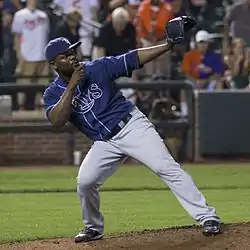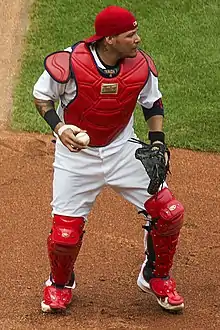World Baseball Classic
The World Baseball Classic (abbreviated as WBC, or sometimes, The Classic[1]) is an international baseball tournament, sanctioned from 2006 to 2013 by the International Baseball Federation (IBAF) and after 2013 by World Baseball Softball Confederation (WBSC) in partnership with Major League Baseball (MLB) and the Major League Baseball Players Association (MLBPA) through the World Baseball Classic Inc. The winning team is awarded the World Baseball Classic Championship Trophy.[2][3]
| Upcoming season or competition: | |
 | |
| Sport | Baseball |
|---|---|
| Founded | 2005 |
| Inaugural season | 2006 |
| Administrator | |
| No. of teams | 20 (finals) |
| Region | Worldwide |
| Most recent champion(s) | (2023) |
| Most titles | |
| TV partner(s) | MLB International ESPN (2006–2009) MLB Network (2012–2017) FOX (2023–) FOX Sports (2023–) FOX Deportes (2023–) |
| Streaming partner(s) | Tubi (2023) |
| Official website | world-baseball-classic |
| WBSC Championship |
|---|
| Amateur World Series |
| Baseball World Cup |
| World Baseball Classic |
It was proposed to the IBAF and other professional baseball leagues and their players associations around the world by Major League Baseball (MLB) and the Major League Baseball Players Association (MLBPA). It is one of the two main senior baseball tournaments sanctioned by the WBSC, alongside the Premier 12 but the Classic is the only one which grants to the winner the title of "World Champion".[4][5]
It previously coexisted with Olympic baseball (until 2008) and the Baseball World Cup (until 2011) as IBAF-sanctioned tournaments.[6] The final men's Baseball World Cup was held in 2011, and it was discontinued in 2013, after an MLB suggestion to reorganize the international baseball calendar; WBSC accepted the suggestion after an executive meeting, giving the "World Champion" title to the WBC winner, on the condition that the Classic should have direct qualifications and follow international anti-doping rules.[7]
It was first held in 2006 as an invitational event to which 16 countries were invited.
The tournament is the first of its kind to have national teams featuring professional players from the major leagues around the world, including Major League Baseball. In addition to providing a format for the best baseball players in the world to compete against one another while representing their home countries, the World Baseball Classic was created in order to further promote the game around the globe.
After a three-year gap between the first two instalments of the tournament, plans were made for the World Baseball Classic to be repeated every four years following the 2009 event. The third instalment of the Classic was held in 2013, and the fourth was held in 2017.
The World Baseball Classic was held five times from 2006 to 2023, with Japan, the Dominican Republic, and the United States winning the championship. Japan, as of the 2023 tournament, is the only team to win the tournament multiple times.
History
Past

The Baseball World Cup is the World Baseball Classic that existed before the classic game was made. This event started in 1988 and lasted until 2011. Between the existence of the World Cup, there used to be the Amateur World Series, which started in 1938 and lasted until 1986
The 1938 Amateur World Series was the inaugural Amateur World Series tournament. It was contested by Great Britain and the United States over a series of five games from August 13 to August 20 in England. It was won by Great Britain.
In the 2011 Baseball World Cup, Netherlands defeated Cuba in the final, winning its first title, and only the second ever for a European team, after Great Britain's win of the inaugural 1938 Amateur World Series.
In 2013, The World Baseball Classic is one of the two main senior baseball tournaments sanctioned by the WBSC, alongside the Premier 12 but the Classic is the only one which grants to the winner the title of "World Champion".[4][5]
Founding
Modeled after the FIFA World Cup and organized in large part as a response to the International Olympic Committee's decision to remove baseball as an Olympic sport in 2005, the WBC has grown into a major sporting event worldwide. The tournament games often rank among the highest-rated sporting events in television history in various participating countries.[8][9][10]
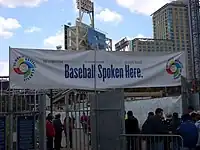
The World Baseball Classic is held during the month of March, coinciding with the spring training pre-season for most professional baseball leagues such as Major League Baseball (MLB), Nippon Professional Baseball (NPB) or the KBO League.[11] Venues are located in either indoor baseball domes or at outdoor baseball stadiums which have mild or moderately warm temperatures during early spring. Despite the absence of many elite MLB pitchers due to exposure or conditioning limits set by their club employers and insurance underwriting issues and non-standardization,[12][13] the tournament continues to attract a star-studded field of elite baseball players, particularly among position players who are potent batters.[14]
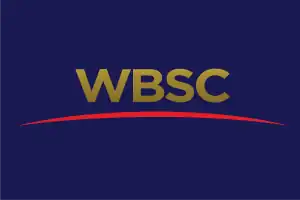
It was discontinued in 2013, after an MLB suggestion to reorganize the international baseball calendar. WBSC accepted the suggestion after an executive meeting, giving the "World Champion" title to the WBC winner on the condition that the Classic should have direct qualifications and follow international anti-doping rules.
In 2019, MLB Commissioner Rob Manfred says, "The World Baseball Classic, of course, is a big element of all of that".[15]
2006
The 16-team field for the inaugural 2006 tournament was pre-selected, featuring the countries judged to be the "best baseball-playing nations" in the world; no qualifying competition was held.[16] The tournament format featured round-robin group play in the first and second rounds, followed by single-elimination semifinals and finals. The first game in WBC history saw South Korea defeat Chinese Taipei 2–0 before a crowd of 5,193 at the Tokyo Dome on March 3, 2006. South Korea went on to advance to the semifinals with a 6–0 record but lost to Japan (a team South Korea had beaten twice in the earlier rounds) for a berth in the final game. Meanwhile, Cuba defeated the Dominican Republic in the other semifinal. Both countries had to go through two rounds of group stages and the semi-finals in knockout format to reach the final. Cuba lost only two games, once to Puerto Rico in the first round and once to the Dominican Republic in the second round. However, Japan lost three times, twice to South Korea in each round and the United States in the second round. This sparked a format controversy since South Korea would have a better overall and head-to-head record than Japan by the end of the tournament. As such, Cuba was the favorite to win the final as the team with the higher winning percentage of games in the tournament were to be the home team.
The match began progressing when Japan's starting pitcher–Daisuke Matsuzaka–gave up four hits, five strikeouts and one run by the end of the 4th inning through a gyroball pitching style. Offensively, Japan was able to record 6 runs with the help of Ichiro Suzuki's batting style of contact hitting. Once the Japanese bullpen took the mound in the 6th inning, Cuba aggressively responded for the rest of the baseball game through power hitting. By the end of the eighth, the disparity would come down to one run in favor of Japan from Frederich Cepeda's home run, who would record three runs batted in by the end of the game. In the ninth, Japan would counter by pushing their offensive limit over Cuba's, which would result in a final score of ten to six. The aftermath of the final most notably included notice from Major League Baseball, from Cuba's increase in defection to Matsuzaka's impact for the World Series champion Boston Red Sox in the next year.
2009
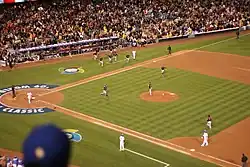
The 2009 tournament featured the same 16 teams as 2006, but the controversial round-robin format from 2006 was replaced by a modified double-elimination format for the first two rounds (the semifinals and final game remained single-elimination). The eight teams advancing from the first round were the same as in 2006, except for a "Cinderella" performance by the Netherlands, which twice defeated the Dominican Republic to reach the second round. In the semifinals, South Korea defeated Venezuela while Japan defeated the United States. South Korea won the coin flip held after the second semifinal between Japan and the United States, designating them as the home team for the final.[17]
_(3390580899).jpg.webp)
Japan drew first blood, scoring on an RBI single by Michihiro Ogasawara in the third inning. Shin-Soo Choo tied the score 1−all with a home run in the fifth inning. With runners on first and third, Hiroyuki Nakajima hit an RBI single to bring Seiichi Uchikawa home to give Japan the lead 2−1.[18] South Korea failed to take advantage of Japanese pitcher Hisashi Iwakuma, who was visibly tired, when they failed to score in the seventh inning, when Iwakuma was relieved by Toshiya Sugiuchi after two outs. Uchikawa hit a single to start the eighth. Atsunori Inaba scored a double to put Uchikawa in scoring position, and Uchikawa scored on Akinori Iwamura's sacrifice fly. Hyun-wook Jong retired the remaining batters to close out the inning.[18]
Japan brought out their closer, Yu Darvish, for the bottom of the ninth with a 3−2 lead. Darvish struck out Keun-woo Jeong, but walked Hyun-soo Kim and Tae-kyun Kim to put South Koreans on first and second with one out. Darvish then struck out Choo and was one out away from saving the game. But Bum-ho Lee singled, driving in Jong-wook Lee for the game-tying run to make it 3−all and send the game into extra innings.[19]
Japan batted first, with Chang-yong Lim pitching for South Korea in the tenth. Uchikawa and Iwamura hit a single to put runners on first and third with two out. Ichiro was one strike away from ending the inning when he hit a line-drive single up the middle that scored Iwamura and Uchikawa. Lim then hit Nakajima with a pitch and intentionally walked Norichika Aoki to face Kenji Johjima who was hitless up to that point. Lim was able to strikeout Johjima and send the game to the bottom of the tenth. Darvish made short work of South Korea, capping with a strikeout of Keun-woo Jeong to clinch Japan's successful defense of their 2006 championship.[19][20]
Pitcher Daisuke Matsuzaka of Japan was awarded the tournament MVP for the second consecutive time, with a 3−0 record and 2.45 ERA.[21][22]
After the match the team was congratulated immediately for their victory by Japanese prime minister Taro Aso. And Korean President Lee Myung-bak invited the Korean team to come and encourage the team.
2013
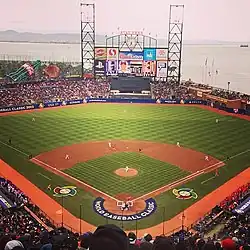
In 2013, The World Baseball Classic is one of the two main senior baseball tournaments sanctioned by the WBSC, alongside the Premier 12 but the Classic is the only one which grants to the winner the title of "World Champion".[4][5]
The buildup to the 2013 tournament included a qualifying round for the first time, with the four lowest finishers from 2009 having to re-qualify against 12 additional teams. This resulted in two new nations making their first appearances in the WBC, as Brazil and Spain respectively replaced Panama and South Africa. The round-robin format was revived for the tournament's first-round, while the second-round remained double-elimination. Italy was the biggest surprise in the early stages of the tournament, making it to the second round with wins over Canada and Mexico. The tournament ended in an all-Caribbean championship game, with the Dominican Republic defeating Puerto Rico, In the final, Samuel Deduno started for the Dominican Republic, while Giancarlo Alvarado started for Puerto Rico.[23][24] 35,703 fans attended the game at AT&T Park in San Francisco. An additional 50,000 Dominican fans watched the game at Estadio Quisqueya in Santo Domingo, Dominican Republic.[23] In Puerto Rico, the final was the most watched sporting event for the past year with nearly three-fourths of all households tuning in.[25][26]
Edwin Encarnación hit a two-run double in the first inning, giving the Dominican Republic the lead. Erick Aybar had the game's third run batted in for the Dominican Republic. Deduno recorded five strikeouts in five scoreless innings pitched and Fernando Rodney completed the game with a save, his seventh of the tournament.[23] Four Dominican relief pitchers combined for 4 scoreless innings.[27]
This was the third time in the tournament that the Dominican Republic defeated Puerto Rico.[23] The Dominican Republic completed the tournament with an 8–0 record, becoming the first undefeated team to win the World Baseball Classic.[26] Robinson Canó was named the Most Valuable Player of the Classic after he batted 15-for-32 (.469), the most hits in tournament history. After the match the team was congratulated for their victory by Dominican president Danilo Medina.[26][28]
2017
.jpg.webp)
.jpg.webp)
The 2017 tournament returned to the format used in 2006, where both the first and second rounds were round-robin, though with the addition of tiebreaker games if needed. Colombia and Israel qualified for the first time, with Israel, using a roster mostly of Jewish American players,Prior to the start of the 2017 World Baseball Classic, ESPN considered Team Israel, ranked 41st in the world, to be the biggest underdog in the tournament, referring to it as the "Jamaican bobsled team of the WBC".[29][30]
Defending champion Dominican Republic extended its WBC winning streak to 11 games, dating to the 2013 tournament, before being eliminated in the second round. The United States won its first WBC championship, defeating Japan and Puerto Rico in the semifinals and finals, respectively. Puerto Rico reached the championship undefeated in the tournament, winning all seven games played. Puerto Rico had defeated the United States when they faced each other in Pool F.[31]
In the semi-final Japan reached the semifinals with wins in all six games played in the previous rounds.[32] Tanner Roark started for the United States in the semifinal game,[33] while Tomoyuki Sugano started for Japan.[34] Roark pitched four scoreless innings,[35] while Sugano allowed one run in six innings. The United States scored a run on an RBI single by Andrew McCutchen in the fourth inning, and Ryosuke Kikuchi hit a home run for Japan in the sixth inning to tie the game. The United States scored another run in the eighth inning to take the lead, and Luke Gregerson earned the save. Though the Japanese team was considered the strongest defensive team in the WBC, mistakes by Kikuchi at second base and Nobuhiro Matsuda at third base led to each of the United States's runs.[36]
In the championship game, Seth Lugo started for Puerto Rico,[37] and Marcus Stroman started for the United States. Ian Kinsler hit a two-run home run for the United States in the third inning, as Puerto Rico's performance faltered without earning a single run throughout the innings. Kinsler scored again in the fifth inning on a single by Christian Yelich, and Yelich scored on an infield single by McCutchen. Two more runs scored on a bases loaded single by Brandon Crawford in the seventh inning, and Giancarlo Stanton scored the inning's third run with an RBI single. Meanwhile, Stroman did not allow a hit for the first six innings of play. The United States added another run in the eighth inning with an RBI single by McCutchen. The United States completed the shutout to win the championship.[38] Stroman was named the tournament's Most Valuable Player.[39]
2023
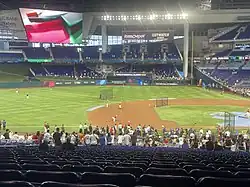
.jpg.webp)
In January 2020, MLB announced that the 2021 WBC would be expanded to 20 teams. The additional four participants would be determined through qualifying tournaments, which were originally planned to take place in March 2020.[40] However, on March 12, 2020, Major League Baseball announced that the 2021 tournament would be postponed due to the COVID-19 pandemic.[41]
The collective bargaining agreement (CBA) from the 2021–22 Major League Baseball lockout planned for the next World Baseball Classic to be held in 2023.[42][43] Qualification for the tournament concluded on October 5, 2022, with Nicaragua claiming the final berth in a victory against Brazil.[44] The competition took place from March 8, 2023, to March 21, 2023.[45][46]
For the 2023 classic, the MLB urged its stars to participate. Mike Trout announced his participation, which motivated a cascade of others including Trea Turner, Paul Goldschmidt, Nolan Arenado, J.T. Realmuto, Mookie Betts and more of MLB's finest to join Team USA. This further stimulated participation of other important stars in countries around the world. The Samurai Japan team assembled their own star-studded roster, including Shohei Ohtani, Roki Sasaki, Yu Darvish, Masataka Yoshida, Munetaka Murakami, and Yoshinobu Yamamoto, to form what for many is the most powerful Japanese team in history.
The United States beat Venezuela to face Cuba in the semifinals. Baseball is Cuba's most popular sport, and is played at a very high level. Therefore, the stakes of the encounter were high. Meanwhile, Japan faced Mexico in the semifinals, who were on a Cinderella run, majorly lead by Tampa Bay Rays outfielder Randy Arozarena.
After defeating Cuba in the semifinals by a wide margin, the United States faced another great rival, Japan, in the final. The final was incredibly popular in Japan, drawing over 54 million Japanese viewers. Shota Imanaga started for Japan, while Merrill Kelly started for USA. With a 3 - 2 lead, two outs, and no runners on base in the bottom of the ninth inning, Japan's Shohei Ohtani - one of the best pitchers in recent memory - stood on the mound as his Angels teammate Mike Trout, widely considered the greatest player of his generation, stepped up to the plate. After the first pitch of this iconic matchup, Fox Sports commentator Joe Davis reflected on the spectacle, saying, "As Benji Gil said last night, 'Baseball's already won.'" The two battled to a full count. Ohtani would lure Trout to swing and miss with a gutsy slider down and away, sealing the victory for Japan.
After the match, the team was congratulated for their victory by Japanese prime minister Fumio Kishida. With Japan's win over USA in the championship game, they became the second team to win the World Baseball classic without losing a single game the entire tournament, after the aforementioned Dominican Republic in 2013.[47]
For the 2026 tournament, 16 teams qualified by making the top four of their four respective pools during the 2023 tournament. The other four remaining participants were determined through the qualifying tournament.[48]
Anthem
The Classic theme song was sung directly by Oakland Symphony from 2006 to 2013,[49] From 2017, WBC started various songs during tornament, such as the 2023 main song´s "Chispa" sung by Daddy Yankee.[50]
Qualification
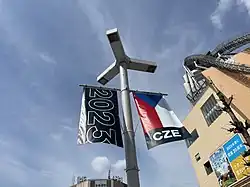
The first two iterations of the Classic featured the same 16 teams, chosen by invitation. A qualifying round was added leading into the 2013 tournament and takes place in the year before the WBC proper. Brazil and Spain were the first new countries to earn berths in the WBC via qualification, and so far the addition of qualifying has allowed seven nations to play in the tournament who were not part of the original 16.
The qualification setup for the 2013 and 2017 WBCs featured the top 12 finishing teams from the previous WBC being automatically entered in the following edition, while the four lowest finishers (the teams that finished in last place in their first-round pools) were relegated to the qualifying round. Qualifying consisted of four four-team modified double-elimination tournaments, with the winners earning the last four slots in the main tournament.
With the 2023 WBC expanding to 20 teams, the qualifying format changed as well. All 16 participants from the 2017 WBC received automatic bids. The restructured qualifying round consisted of a pair of six-team double-elimination tournaments, from which the winners and runners-up advanced to play in the 2023 WBC.
Results
- Keys
- F/N: result/match won after extra innings or mercy rule, where N is the total number of innings in the match
- TBD: to be determined
| Ed. | Year | Hosts | First place game | Semi-finalists | Num. teams | |||
|---|---|---|---|---|---|---|---|---|
| Score | Fourth | |||||||
| 1 | 2006 | Japan |
10–6 Petco Park, San Diego |
Cuba |
South Korea |
Dominican Republic |
16 | |
| 2 | 2009 | Japan |
5–3 (F/10) Dodger Stadium, Los Angeles |
South Korea |
United States |
Venezuela |
16 | |
| Ed. | Year | Hosts | First place game | Semi-finalists | Num. teams | |||
| Score | Fourth | |||||||
| 3 | 2013 | Dominican Republic |
3–0 AT&T Park, San Francisco |
Puerto Rico |
Netherlands |
Japan |
16 | |
| 4 | 2017 | United States |
8–0 Dodger Stadium, Los Angeles |
Puerto Rico |
Japan |
Netherlands |
16 | |
| 5 | 2023 | Japan |
3–2 LoanDepot Park, Miami |
United States |
Mexico |
Cuba |
20 | |
| 6 | 2026 | TBD | Future event | TBD | ||||
Teams reaching the top four
After the conclusion of each WBC championship game, players from the losing team receive silver medals, followed by the winners receiving gold medals. The third-place team receives bronze medals at a separate date. The WBC does not hold a third-place playoff, so the ranking of the third- and fourth-placed teams is determined by the WBSC.
| Team | Champions | Runners-up | Third place | Fourth place | Total |
|---|---|---|---|---|---|
| 3 (2006, 2009, 2023) | – | 2 (2013, 2017) | – | 5 | |
| 1 (2017) | 1 (2023) | – | 1 (2009) | 3 | |
| 1 (2013) | – | – | 1 (2006) | 2 | |
| – | 2 (2013, 2017) | – | – | 2 | |
| – | 1 (2009) | 1 (2006) | – | 2 | |
| – | 1 (2006) | – | 1 (2023) | 2 | |
| – | – | 1 (2009) | – | 1 | |
| – | – | 1 (2023) | – | 1 | |
| – | – | – | 2 (2013, 2017) | 2 |
Performance of nations
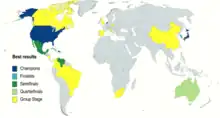
A total of 23 nations have competed in the WBC proper, with 14 appearing in all five editions. Japan has been the most successful, as the only nation with multiple WBC titles (2006, 2009, 2023), the nation with the most wins in WBC play (30), and as the only nation to reach the championship round in all five WBCs. Japan owns the best overall winning percentage in WBC games at .789 (30–8 record), bolstered by its 7–0 mark en route to the 2023 title.
Along with Japan, three other nations have advanced to at least the second round in all five WBCs: Cuba, Puerto Rico, and the United States. The US posted a 10–10 overall record through the first three WBCs, with only one appearance in the semifinals. The Americans broke through in 2017, going 6–2 on their way to their first WBC title, then returned to the finals in 2023. Cuba lived up to its history of strong international play by reaching the finals of the inaugural WBC in 2006 before losing to Japan. However, subsequent Cuban teams failed to make a significant mark on the tournament, making three straight second-round exits from 2009 to 2017. Cuba did make it back to the semifinals in 2023, only to suffer a blowout loss to Team USA in the countries' first-ever WBC meeting. Meanwhile, Caribbean rival Puerto Rico made consecutive appearances in the WBC finals in 2013 and 2017, albeit losing both, and stood second to Japan for the most all-time WBC wins (23) after the 2023 tournament.
Of the seven teams to have earned their way into the WBC through the qualification round, only Israel has gone on to reach the second round of the main tournament, doing so in its debut in 2017. Conversely, of the 14 teams to appear in all five tournaments, two have never advanced past the first round: Canada and China. Australia, having also appeared in all four previous tournaments, made it to the second round for the first time in 2023.
Performance of confederations
The World Baseball Softball Confederation (WBSC) currently divides all countries into five confederations based on their region: Africa, Americas, Asia, Europe, and Oceania.[51] Currently, the two best confederations in international baseball are Americas and Asia, as both confederations add up to 18 of the 20 top four finishes (three titles for Asia and two titles for the Americas). While the appearances of the Americas region expands throughout, all appearances for Asia in the World Baseball Classic were by countries in East Asia in particular. Europe holds the other 2 of the 16 top four finishes, both coming from the Netherlands with the help of the Dutch Caribbean.[52] Italy's and Israel's top eight appearances in 2013 and 2017 respectively have led the region's growth in baseball in addition to the Netherlands' two top four finishes.[53][54] As for Africa and Oceania, both regions lack a baseball scene in general, although South Africa and Australia are indisputably the best two countries in baseball in their respective regions due to their strong leagues.[55][56] In addition, both countries make up all of the World Baseball Classic appearances for their respective regions, including a quarterfinals finish by Australia in 2023.
As decorated as the Americas region is, only six countries in the region have ever made the top four: Cuba, Dominican Republic, Mexico, Puerto Rico, United States, and Venezuela. The Dominican Republic and United States are the only countries to earn first place, in 2013 and 2017 respectively. In addition to the aforementioned champions, Cuba and Puerto Rico are the only other countries to have made the top four more than once. As for Asia, the countries in East Asia dominate the baseball scene in that region, as Japan and South Korea are the only two countries in that region to appear more than once in the top four. On top of that, Japan is the only country in the world to appear in the top four in all iterations of the World Baseball Classic, with three first-place finishes earned. As such, all bids so far have been granted to those two regions.
| Confederation | Africa | Americas | Asia | Europe | Oceania | Total |
|---|---|---|---|---|---|---|
| Teams | 2 | 42 | 20 | 15 | 5 | 84 |
| Top 8 | 0 | 25 | 8 | 6 | 1 | 40 |
| Top 4 | 0 | 11 | 7 | 2 | 0 | 20 |
| Top 2 | 0 | 6 | 4 | 0 | 0 | 10 |
| 1st | 0 | 2 | 3 | 0 | 0 | 5 |
| 2nd | 0 | 4 | 1 | 0 | 0 | 5 |
| 3rd | 0 | 2 | 3 | 0 | 0 | 5 |
| 4th | 0 | 3 | 0 | 2 | 0 | 5 |
Honors
Most Valuable Player
_(cropped).jpg.webp)
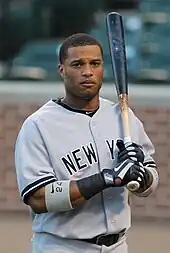
The most significant award for individual performance during the tournament is the Most Valuable Player Award. Whichever player wins it receives a trophy after the final. The inaugural winner of the award in 2006 was Japan's Daisuke Matsuzaka, who pitched 13 innings and finished with a 3–0 record. Soon after this performance, Matsuzaka received a multimillion-dollar contract to join the Boston Red Sox of America's Major League Baseball.[57] Again in the 2009 World Baseball Classic, Matsuzaka received the world classic MVP, finishing with a record of 3–0 and an ERA of 2.54. In 2013, Robinson Canó won MVP after hitting .469 with two home runs and six RBI over the course of the tournament.[58] Toronto Blue Jays pitcher Marcus Stroman took home the award in 2017 for the United States. Stroman posted a 2.35 ERA over three starts and no-hit Puerto Rico through six innings in an 8–0 win in the Finals.[59] In 2023, Los Angeles Angels two-way superstar Shohei Ohtani claimed MVP honors after slashing .435/.606/.739 as a hitter and posting a 1.86 ERA and 11 strikeouts in 92⁄3 innings as a pitcher, also pitching the final inning of Japan's win over the US in the final.[60]
| Year | Player | Position | Nationality |
|---|---|---|---|
| 2006 | Daisuke Matsuzaka | Starting pitcher | |
| 2009 | Daisuke Matsuzaka | Starting pitcher | |
| 2013 | Robinson Canó | Second baseman | |
| 2017 | Marcus Stroman | Starting pitcher | |
| 2023 | Shohei Ohtani | Starting pitcher/designated hitter |
All-WBC teams
At the end of each edition of the World Baseball Classic, an all-star team is selected based on their play in the tournament. Three pitchers, eight other position players (one each at each position, including three outfielders), and a designated hitter are named to the team. Japanese pitcher Daisuke Matsuzaka, Puerto Rican catcher Yadier Molina and Puerto Rican shortstop Javier Báez are the only players to be named to the All–WBC team twice. Japanese two-way player Shohei Ohtani is the only player to be named to the All-WBC team at two separate positions, having been named to the 2023 team as both a designated hitter and a pitcher.
Overall, players representing 12 countries have been named to an All-WBC team, with Japan leading the way with 12 representatives.
| Rank | 2006 | 2009 | 2013 | 2017 | 2023 | Total |
|---|---|---|---|---|---|---|
| 3 | 3 | 2 | 1 | 3 | 12 | |
| 0 | 1 | 3 | 5 | 1 | 10 | |
| 2 | 1 | 1 | 3 | 2 | 9 | |
| 1 | 0 | 5 | 1 | 0 | 7 | |
| 3 | 4 | 0 | 0 | 0 | 7 | |
| 3 | 2 | 0 | 0 | 2 | 7 | |
| 0 | 0 | 0 | 0 | 2 | 2 | |
| 0 | 1 | 0 | 0 | 1 | 2 | |
| 0 | 0 | 1 | 0 | 0 | 1 | |
| 0 | 0 | 0 | 1 | 0 | 1 | |
| 0 | 0 | 0 | 1 | 0 | 1 | |
| 0 | 0 | 0 | 0 | 1 | 1 |
Statistical leaders
All-time WBC individual leaders in various statistical categories through the end of the 2023 tournament, excluding qualifier games.[61]
|
Batting
|
Pitching
|
Trophy
Rules of play
In addition to the standard rules of baseball, the World Baseball Classic employs the following additional rules:
Pitch counts
A pitcher cannot pitch more than:
- 85 pitches per game in the Qualifying Round (all tournaments since 2013, when this round was introduced)
- 65 pitches per game in the First Round (all tournaments except 2009, in which the limit was 70)
- 80 pitches per game in the Second Round (all tournaments except 2009, in which the limit was 85)
- 95 pitches per game in the Championship Round (all tournaments except 2009, in which the limit was 100)
A pitcher can still finish a batter's plate appearance even if the limit is reached, but must come out after completing the plate appearance.
A pitcher cannot pitch until:
- a minimum of four days have passed since he last pitched, if he threw 50 or more pitches when he last pitched
- a minimum of one day has passed since he last pitched, if he threw 30 or more pitches when he last pitched
- a minimum of one day has passed since any second consecutive day on which the pitcher pitched
Mercy rules
To prevent one-sided contests, games are ended early if one team is ahead by:
- 10 or more runs after any complete inning, beginning with the completion of the seventh inning, or;
- 15 or more runs after any complete inning, beginning with the completion of the fifth inning[62]
These mercy rules do not apply during the knockout stage.[63]
Designated hitter
The designated hitter rule applies for all games.[64]
Extra innings
From 2009 through 2017, starting with the 11th inning, teams automatically start with runners on first and second base.[65] The baserunners are the players in the two batting order positions previous to the leadoff batter for the inning (or substitutes called in to pinch-run for those players). Organizers put this rule in place starting with the 2009 tournament, although originally, it did not come into effect until the 13th inning.[66] The intention behind the rule is to help ensure extra-inning games end in as timely a manner as possible, reducing the chance of seeing marathon extra-inning games that place undue strain on players, particularly pitchers.[67] As no extra-inning games in either the 2009 or 2013 WBCs reached the point where the rule came into play, it took until the 2017 WBC for it to affect a game's outcome. There were three such games in 2017, and all three were decided in the 11th inning.
In 2023, the rule was changed to bring the WBC in line with Major League Baseball. The 2023 World Baseball Classic rules and regulations reads: "For any inning beginning with the 10th inning, the Federation Team at bat shall begin the inning with a runner on second base. The batter who leads off an inning shall continue to be the batter who would lead off the inning in the absence of this extra-innings rule. The runner on second base shall be the player (or a substitute for such player) in the batting order immediately preceding the batter who leads off the inning."[68]
Video replay review
Beginning in the 2023 World Baseball Classic, video review is available for all situations as it would be during a Major League Baseball regular season game.[68]
Run differential
Unlike regular season play, where the number of runs by which a team wins a game is not relevant, the number of runs by which a WBC team wins may be relevant if a tie later develops in the standings. In such cases, teams are ranked by their Team Quality Balance, which rewards them for scoring by as many runs as possible, and for winning with as few of their batters getting out as possible when batting in the bottom of the inning.[69] This caused problems during the 2013 WBC, where one game spawned a bench-clearing brawl between the Canadian and Mexican teams (Canadian hitter Chris Robinson had bunted for a base hit after Canada had already taken a large lead, causing Mexican pitcher Arnold Leon to throw three consecutive pitches at the next hitter, Rene Tosoni).
These tiebreakers were changed starting in the 2017 WBC to be "fewest runs allowed per inning of defense in head-to-head games", which still places an emphasis on scoring as many runs as possible (whilst also allowing the fewest runs as possible).
Eligibility and participation
Eligibility
A player is eligible to participate on a World Baseball Classic team if any one of the following criteria is met:[70]
- The player is a citizen of the nation the team represents.
- The player is qualified for citizenship or to hold a passport under the laws of a nation represented by a team, but has not been granted citizenship or been issued a passport; in this case, the player may be made eligible by World Baseball Classic Inc. upon petition by the player or team.
- The player is a permanent legal resident of the nation or territory the team represents.
- The player was born in the nation or territory the team represents.
- The player has one parent who is, or if deceased was, a citizen of the nation the team represents.
- The player has one parent who was born in the nation or territory the team represents.[71]
Player participation
In 2006, many high caliber players from both Major League Baseball and in leagues around the world participated in the World Baseball Classic. Amongst the players that made the All–WBC team were Americans Derek Jeter and Ken Griffey Jr. From Japan, Daisuke Matsuzaka, Ichiro Suzuki and Tomoya Satozaki were on the team. Other internationals included players from Cuba—Yulieski Gurriel, Yoandy Garlobo and Yadel Martí; and from the Dominican Republic—Albert Pujols, Pedro Martínez and José Bautista. The 2009 Classic saw a similarly high-profile field, with a number of players such as Hall of Famers Pedro Martínez, Iván Rodríguez and Chipper Jones and the major international debuts of Cuba's Yoenis Céspedes and Aroldis Chapman.
For the 2013 tournament, many high-profile players decided not to participate, including key players from the 2009 Japanese team such as Yu Darvish, Ichiro, and Hisashi Iwakuma. However, other prominent players came, such as Miguel Cabrera, David Wright, R. A. Dickey, Joey Votto, Adrián González, Robinson Canó, and José Reyes, among many others.
In 2017, former All-Stars such as Adam Jones, Chris Archer, Buster Posey, Paul Goldschmidt, Andrew McCutchen and others played for the United States. For the Dominican Republic, former All-Stars Adrián Beltré, Robinson Canó, Manny Machado, José Reyes, Edinson Vólquez, and more participated. Adrián González played once more for Mexico, and Yadier Molina and Carlos Beltrán represented Puerto Rico alongside up-and-coming stars such as Javier Báez, Carlos Correa, and Francisco Lindor. Venezuela's roster included José Altuve and Miguel Cabrera.
In 2023, former All-Stars on the U.S. team included Mike Trout, Nolan Arenado, Pete Alonso, Mookie Betts, Tim Anderson, Jeff McNeil, J.T. Realmuto, Kyle Schwarber, Trea Turner, Kyle Tucker, Ryan Pressly, Lance Lynn, Miles Mikolas, and Paul Goldschmidt.[72] St Louis Cardinals teammates Lars Nootbaar and Tommy Edman both participated as part of Japan and South Korea respectively, in honor of both their mothers' heritages.[73][74] Similarly, Los Angeles Dodgers player Freddie Freeman decided to play for Canada instead, in honor of his late mother.[75] Randy Arozarena, despite being Cuban, opted to play for Mexico instead after the WBC rules allowed players who legally were residents in a country to play for that country, having asked Mexican president Andrés Manuel López Obrador to help him in his case for approval of his application as a legal citizen of Mexico.[76]
Involvement of professional leagues
The tournament was announced in May 2005 by Commissioner of Baseball Bud Selig.[77] Major League Baseball had been attempting to create such a tournament for at least two years; negotiations with the players' union (MLBPA) and with the team owners had held the plan back. Owners, notably New York Yankees owner George Steinbrenner, had been concerned about their star players being injured in international play before the beginning of spring training, and the professional season. This was a concern for the MLBPA as well, but their primary objection was with drug testing. MLB wanted the stricter Olympic standards in place for the tournament, while the union wanted current MLB standards in place. Eventually, a deal was reached on insurance for player contracts and a fairly tough drug testing standard. MLB teams would not be able to directly block their players from participating.
Similarly, Nippon Professional Baseball (NPB) and its players' association had a disagreement over participation in the tournament. While the owners initially agreed to the invitation, the players' union was concerned about the time of year the tournament was scheduled to take place, as well as their right to be better represented for the 2009 tournament. On September 16, 2005, after four months of negotiations, NPB officially notified the IBAF and MLB they had accepted the invitation. In September 2012, after having threatened to boycott the event despite its domestic popularity,[78] Japanese players agreed to take part after reaching a compromise with tournament organizers on sharing sponsorship and licensing revenue.[79]
Media coverage
The tournament is one of the world's most viewed baseball events.[80][81][82] The 2023 tournament was broadcast in 163 territories through 63 media partners, and it was broadcast in 13 languages around the globe.[83] and received US$100 million in benefits,[84] and the 2023 tournament semifinal between Mexico and Samurai Japan recorded 61 million viewers, higher than the 1980 World Series, making it one of the most viewed baseball event in the world ever.[85][86][87]
| Rank | Round | Date | Away team | Score | Home team | Network | Viewers (millions) |
|---|---|---|---|---|---|---|---|
| 1 | Group stage | Mar 10, 2023 | South Korea | 4–13 | Japan | MBC/SBS/KBS TBS/TV Asahi |
64.1 M[88][89][86] |
| 2 | Semifinals | Mar 20, 2023 | Mexico | 5–6 | Japan | Imagen TBS/TV Asahi |
61.0 M[87][86] |
| 3 | Group stage | Mar 9, 2023 | China | 1–8 | Japan | Sina Weibo/ Kuaishou/Douyin/ bilibili TBS/TV Asahi |
60.6 M[90][86] |
| 4 | Quarterfinals | Mar 16, 2023 | Italy | 3–9 | Japan | Sky Italia TBS/TV Asahi |
58.3 M[86] |
| 5 | Group stage | Mar 12, 2023 | Japan | 7-1 | Australia | TBS/TV Asahi ESPN Australia |
57.8 M[86] |
| 6 | Group stage | Mar 11, 2023 | Czech Republic | 2–10 | Japan | ČT TBS/TV Asahi |
56.0 M[91][92][86] |
| 7 | Championship | March 21, 2023 | United States | 2–3 | Japan | FS1/Fox Deportes TBS/TV Asahi |
52.0 M[93][94][86] |
The tournament is one of the most popular event in the Caribbean, Central and South America, particularly in Venezuela, part of Northern Colombia and is called the "Clásico Mundial".[95][96][97] The match between the Dominican Republic and Puerto Rico is one of the hottest matches in all the classics, it's called "El Clásico", In 2023, Puerto Rico, the Pool D game between Puerto Rico and the Dominican Republic was viewed by 62% of households.[98]
In addition to Latin America, The tournament is considered the biggest sporting event in North America and East Asia, particularly in Japan, South Korea, and Taiwan. In Japanese archipelago, nearly 100 million people watched the WBC,[99] and 55+ million people watched as Shohei Ohtani strike out Mike Trout. and In the United States, the 2023 tournament was carried by Fox Sports for the first time, with games split between six Fox networks. The championship game drew 5.2 million average viewers in the US,[93] peaking at 6.5 million viewers in the final 15 minutes.[94] and 2023 tournament will be broadcast on China's largest websites, including Weibo[100] The match between China and Japan was watched by up to 422,000 people[90]
Attendance
World Baseball Classic attendance:
| Year | Host(s) | Total attendance | # games | Avg attendance |
|---|---|---|---|---|
| 2006 | 737,112 | 39 | 18,900 | |
| 2009 | 801,408 | 39 | 20,549 | |
| 2013 | 781,438 | 39 | 20,037 | |
| 2017 | 973,699 | 40 | 24,342 | |
| 2023 | 1,165,857 | 47 | 24,805 | |
World Baseball Classic qualifier attendance:
| Year | Total attendance | # Games | Avg attendance |
|---|---|---|---|
| 2013 | 103,774 | 24 | 4,324 |
| 2017 | 111,795 | 24 | 4,658 |
| 2023 | 26,080 | 18 | 1,449 |
Venues
While comparable tournaments (like the FIFA World Cup) traditionally have had one host country, each WBC has used multiple hosts spread around different parts of the world. Thus far, seven different countries have hosted at least one WBC pool, with each edition of the tournament featuring games played in Asia, Latin America, and the United States. However, the championship round has always been held at Major League Baseball stadiums in the United States.
The following table lists nations who've hosted any WBC rounds in the first five iterations of the event, not including qualifiers, and without regard to whether a nation hosted multiple rounds in the same year.
| Country | Bids | Years |
|---|---|---|
| 5 | 2006, 2009, 2013, 2017, 2023 | |
| 5 | 2006, 2009, 2013, 2017, 2023 | |
| 3 | 2006, 2009, 2013 | |
| 2 | 2009, 2017 | |
| 2 | 2013, 2023 | |
| 1 | 2009 | |
| 1 | 2017 |
| Round | 2006 | 2009 | 2013 | 2017 | 2023 |
|---|---|---|---|---|---|
| First | |||||
| Second | |||||
| Championship |
See also
- World Baseball Classic Inc.
- World Baseball Classic Trophy
- Major League Baseball
- Major League Baseball Players Association
- World Baseball Softball Confederation
- WBSC Americas
- WBSC Asia
- WBSC Europe
- WBSC Oceania
- WBSC Africa
- Bud Selig
- Rob Manfred
- Riccardo Fraccari
- Fox Deportes
- MLB International
- MLB on Fox
- MLB on FS1
- Baseball awards § World
References
- Baseball Zen: The Classic! See the World Baseball Classic through a Baseball Zen lens
- "Japan 2023 World Baseball Classic Championship Trophy Pano Framed LE #1". auctions.mlb.com. Retrieved 2023-04-18.
- Suvanto, Lyndon. "World Baseball Classic Trophy unveiled, how does it compare to past designs?". www.sportskeeda.com. Retrieved 2023-04-18.
- "IBAF introduces new Format of International Tournaments". IBAF.org. International Baseball Federation. Archived from the original on 25 July 2015. Retrieved 4 October 2014.
- "Japan win World Baseball Classic to add to Premier12 and Olympic titles". World Baseball Softball Confederation. "Japan never won a Baseball World Cup, thus celebrates a historic first as the Baseball World Champions.". Retrieved 2023-04-19.
- "IBAF World Ranking Notes" (PDF). International Baseball Federation. 13 January 2009. Archived from the original (PDF) on 9 May 2019. Retrieved 23 June 2009.
- "Premier12 2019 Official Program – Page 6" (PDF). WBSC. WBSC. Archived from the original (PDF) on 27 November 2019. Retrieved 26 November 2019.
- "Record-breaking World Baseball Classic shows power of international baseball". World Baseball Softball Confederation. Archived from the original on 2023-04-19. Retrieved 2023-04-19.
- Attendance and Television Ratings Shine for '09 World Baseball Classic. Bizofbaseball.com (2009-03-15). Retrieved on 2013-07-23.
- McCarthy, Michael (2023-03-17). "World Baseball Classic Setting Records At Gate, Broadcasts". Front Office Sports. Retrieved 2023-04-19.
- "WBC returns in March 2026, retaining spring training slot". Yahoo Sports. Retrieved 2023-03-22.
- "Manfred wants more star pitchers in next WBC". ESPN. 2023-03-21. Retrieved 2023-03-22.
- "'The sickest tournament ever': Why this WBC could make history". ESPN. 2023-03-08. Retrieved 2023-03-22.
- Yomtov, Jesse. "2023 World Baseball Classic: Team USA's full roster includes 21 All-Stars, 4 MVPs". USA Today. Retrieved 2023-03-22.
- "MLB Committed To Stage 2021 World Baseball Classic, Rob Manfred Says". forbes.com. Retrieved 2019-06-29.
- "World Baseball Classic". Archived from the original on 2015-01-23. Retrieved 2009-03-13.
- Schlegel, John (March 23, 2009). "Japan and Korea familiar foes at Classic". Worldbaseballclassic.com. Archived from the original on December 7, 2010. Retrieved March 24, 2009.
- Bloom, Barry (24 March 2009). "Ichiro lifts Japan to Classic glory". Worldbaseballclassic.com. Archived from the original on 26 March 2009. Retrieved 24 March 2009.
- "Ichiro comes through with big hit as Japan wins WBC". ESPN. Associated Press. March 24, 2009. Retrieved March 24, 2009.
- "Japan vs. Korea box score". Yahoo! Sports. March 24, 2009. Retrieved March 24, 2009.
- Curry, Jack (March 24, 2009). "Ichiro Suzuki Delivers Memorable End to World Baseball Classic". The New York Times. Archived from the original on 25 March 2009. Retrieved 2009-03-27.
- Round 4-2009 WBC Final - Japan vs Korea - Monday, March 23, 2009 - 8:30pm CDT - ESPN, MLB Int. The Bricks & Ivy Archive. 23 March 2019. Archived from the original on 8 May 2020. Retrieved 7 September 2021 – via YouTube.
- "Dominican Republic wins 2013 World Baseball Classic; blanks Puerto Rico in final – MLB – Sporting News". Aol.sportingnews.com. Associated Press. Retrieved March 20, 2013.
- Perrotto, John (March 18, 2013). "WBC provides journeyman one shot at stardom". USA Today. Retrieved March 20, 2013.
- Busfield, Steve (March 20, 2013). "Unbeaten Dominican Republic claim World Baseball Classic title". The Guardian. London. Retrieved March 21, 2013.
- "To D.R., WBC title means everything". ESPN. Retrieved March 21, 2013.
- Kepner, Tyler (March 20, 2013). "World-Class Pitching Carries Undefeated Dominicans to Title". The New York Times. Retrieved March 21, 2013.
- "Danilo Medina felicita la selección de béisbol". El Dia. Archived from the original on April 12, 2013. Retrieved March 21, 2013.
- "Team Israel -- and its mascot, Mensch on a Bench -- is the Jamaican bobsled team of the WBC", ESPN.
- "World Baseball Classic: Israel's Cinderella Run Forges Ahead After Upsetting Taiwan", Haaretz.
- Rogers, Phil (March 22, 2017). "USA-PR a final worthy of emotional WBC '17". MLB.com. Archived from the original on March 22, 2017. Retrieved March 22, 2017.
- Schoenfield, David (March 21, 2017). "Just how good is Japan's unbeaten WBC team?". ESPN.com. Retrieved March 22, 2017.
- Janes, Chelsea (March 19, 2017). "Tanner Roark set to start for Team USA on Tuesday, Daniel Murphy continues to sit". Washington Post. Retrieved March 20, 2017.
- "US gives Roark shot at redemption vs Japan in WBC semis". The Olympian. Associated Press. March 20, 2017. Retrieved March 20, 2017.
- Nightengale, Bob (March 22, 2017). "USA beats Japan, reaches World Baseball Classic final for the first time". USA Today. Retrieved March 22, 2017.
- Witz, Billy (March 22, 2017). "U.S., Exploiting Japan's Miscues, Reaches First W.B.C. Final". The New York Times. Retrieved March 22, 2017.
- Bloom, Barry M. (March 21, 2017). "Puerto Rico eyes crown in Classic run". MLB.com. Archived from the original on March 22, 2017. Retrieved March 21, 2017.
- Gatto, Tom (March 22, 2017). "World Baseball Classic 2017: Live updates of U.S.-Puerto Rico tournament final". Sporting News. Retrieved March 22, 2017.
- "Stroman MVP, U.S. blows out Puerto Rico to win World Baseball Classic". Sportsnet.ca. Associated Press. March 23, 2017. Retrieved March 23, 2017.
- "Qualifying Round brackets set for '21 Classic". MLB.com. Retrieved 2 February 2020.
- "Major League Baseball to delay 2020 Opening Day by at least two weeks". MLB.com Press Release. March 12, 2020. Retrieved May 19, 2020.
- "MLB's plans for international play from now until 2026". Twitter. Retrieved 22 March 2022.
- "World Baseball Classic returning in 2023". The Athletic. Retrieved 22 March 2022.
- "Nicaragua qualify for first World Baseball Classic". www.insidethegames.biz. 2022-10-05. Retrieved 2023-02-14.
- "World Baseball Classic". MLB.com. Retrieved 2023-02-14.
- Glaser, Kyle. "2023 World Baseball Classic Schedule and Scores". www.baseballamerica.com.
- "World Baseball Classic: Shohei Ohtani awarded WBC MVP after closing out championship in Japan's win over USA". CBSSports.com. 2023-03-22. Retrieved 2023-05-30.
- "When's the next World Baseball Classic? MLB commissioner Rob Manfred confirms plans for 2026 tournament". www.cbssports.com. Retrieved 2023-03-22.
- With the Oakland Symphony, the 2013 World Baseball Classic at ATT Field, San Francisco
- Daddy Yankee - CHISPA (Video Oficial)
- "Members of the WBSC". World Baseball Softball Confederation. Retrieved 22 June 2021.
- "With the talent from Aruba and Curaçao, the Netherlands is a World Baseball Classic favorite". Repeating Islands. 8 March 2017. Retrieved 22 June 2021.
- "World Baseball Classic: Promoting the International Growth of the Game". The Bleacher Report. Retrieved 22 June 2021.
- "Heading Home". Menemsha Films. Retrieved 22 June 2021.
- "WBSC Men's Baseball Rankings – Africas". World Baseball Softball Confederation. 6 May 2020.
- "WBSC Men's Baseball Rankings – Americas". World Baseball Softball Confederation. 6 May 2020.
- The first World Baseball Classic in history ESPN. Retrieved on 2010-02-19
- Cano dominates center stage of WBC. chicagotribune.com (2013-03-20). Retrieved on 2013-07-23.
- "Marcus Stroman's masterful outing gets U.S. over hump for first World Baseball Classic title". Sporting News.
- Axisa, Mike (March 21, 2023). "World Baseball Classic: Shohei Ohtani awarded WBC MVP after closing out championship in Japan's win over USA". CBS Sports. Retrieved March 24, 2023.
- "The World Baseball Classic's all-time stat leaders". MLB.com.
- "Rules". World Baseball Classic.
- "World Baseball Classic rule guide: Pitch count, mercy rules, DH". RSN.
- "World Baseball Classic: About - Rules". Archived from the original on 2013-02-09.
- "About World Baseball Classic". worldbaseballclassic.com. Retrieved 12 October 2013.
- "WBC adopts extra-inning rule". ESPN. Associated Press. 30 January 2009.
- Baer, Bill (21 March 2017). "WBC's extra-innings rule cheapens Puerto Rico's win, sadly". NBCSports.com.
- "2023 World Baseball Classic rules and regulations". MLB.com.
- "Major changes coming to international baseball and softball, World Cups". wbsc.org. Retrieved 2021-01-02.
Following the WBSC World Cup/Tournament Commission's recommendation, the team with the best Team Quality Balance (TQB) will advance or place higher in the final standings. The TQB is calculated this way: runs scored/inning played at bat-runs allowed/innings playing on defense.
- "World Baseball Classic Qualifier Rules and Regulations". Archived from the original on 2013-02-09. Retrieved 2013-01-09.
- "Dan Serafini Wins One For Team Italy". 10 March 2009. Retrieved 2009-03-21.
- Kepner, Tyler (2023-03-09). "Captain America". The New York Times. ISSN 0362-4331. Retrieved 2023-03-11.
- "Why is Lars Nootbaar playing for Japan in WBC? California-born outfielder honoring mother's heritage". www.sportingnews.com. 2023-03-21. Retrieved 2023-05-30.
- "Why Tommy Edman is playing for Korea: Michigan-born infielder to represent mother's heritage in World Baseball Classic". www.sportingnews.com. 2023-02-28. Retrieved 2023-05-30.
- "Why Freddie Freeman is playing against the U.S. tonight instead of for Team USA". ESPN.com. 2023-03-13. Retrieved 2023-05-30.
- "Why is Randy Arozarena playing for Mexico in WBC? Cuban-born Rays outfielder embraces Mexican citizenship". www.sportingnews.com. 2023-03-19. Retrieved 2023-05-30.
- Schwarz, A. "Baseball World Cup set for '06". retrieved from ESPN.com on February 24, 2007
- Coskrey, Jason (July 21, 2012). "JPBPA unanimously votes to boycott WBC". The Japan Times. Retrieved August 13, 2012.
- "Japan agrees to play in 2013 WBC". ESPN. Associated Press. September 4, 2012.
- "USA-Japan WBC Title Game Could Be the Most-Watched Baseball Game in History". nbcboston.com. March 21, 2023.
- "How World Baseball Classic may have helped MLB, Cubs grow". allchgo.com. March 22, 2023.
- "When is the World Baseball Classic final? Date, start time, and TV listings". www.sportskeeda.com. March 20, 2023.
- "2023 World Baseball Classic reaches 163 territories". broadcastnow.co.uk. March 24, 2023.
- "WBC delivers emphatic turnout, as much as $100M in revenue". sportsbusinessjournal.com. March 23, 2023.
- In United Mexican States, Imagen broadcast and recorded 5.3m viewers, and In Japanese archipelago, broadcast and TBS, recorded 55.7m viewers
- "WBC日本戦全7試合 全国で推計9446.2万人が視聴". oricon.co.jp. March 23, 2023.
- "Clásico Mundial: Semifinal México vs Japón tuvo un rating brutal". septimaentrada.com. March 22, 2023.
- "What were the 2023 World Baseball Classic TV ratings? Record attendance and viewership". en.as.com. March 22, 2023.
- "[WBC] 한일전 시청률 11.7%…MBC·SBS 공동 1위". yna.co.kr. March 11, 2023.
- Weibo MLB美职棒大联盟
- Čekali jsme, jaký zájem vzbudí premiéra českých baseballistů na WBC v Tokiu.
- "母国84万人が勇姿に夢中! チェコ"史上初の野球中継"の視聴者数が話題に。世界大会での躍動に話題は尽きず【WBC】". THE DIGEST (in Japanese). Retrieved 2023-04-19.
- "World Baseball Classic championship ratings make massive jump from 2017". Archived from the original on 2023-03-23. Retrieved 2023-03-25.
- "USA vs. Japan averages highest viewership ever for World Baseball Classic game". Archived from the original on 2023-03-23. Retrieved 2023-03-25.
- Ni un dominicano en el anunciado Equipo Todos Estrellas del Clásico Mundial 2023
- Clásico Mundial 2023: ¡Por TV abierta! Canal y horarios para ver los juegos de Méxicoc
- Cantidad de dinero dado al equipo campeón del Clásico Mundial 2023
- "World Baseball Classic championship ratings make massive jump from 2017". Archived from the original on 2023-03-23. Retrieved 2023-03-25.
- "平日WBC決勝の視聴者数は延べ約1億人 生中継テレ朝系5463万9000人、録画TBS系4183万8000人". news.yahoo.co.jp. March 23, 2023.
- "Where to Watch the 2023 World Baseball Classic". mlb.com. March 5, 2023.
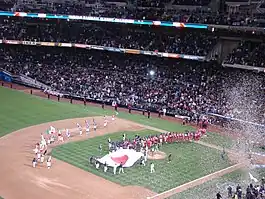
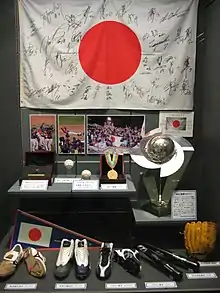
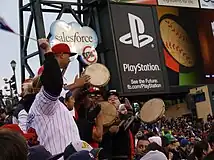
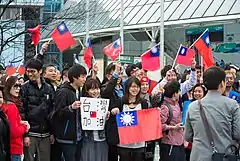
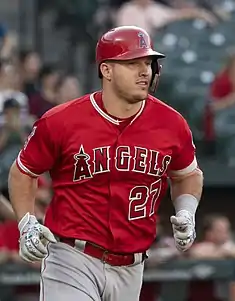
.jpg.webp)
